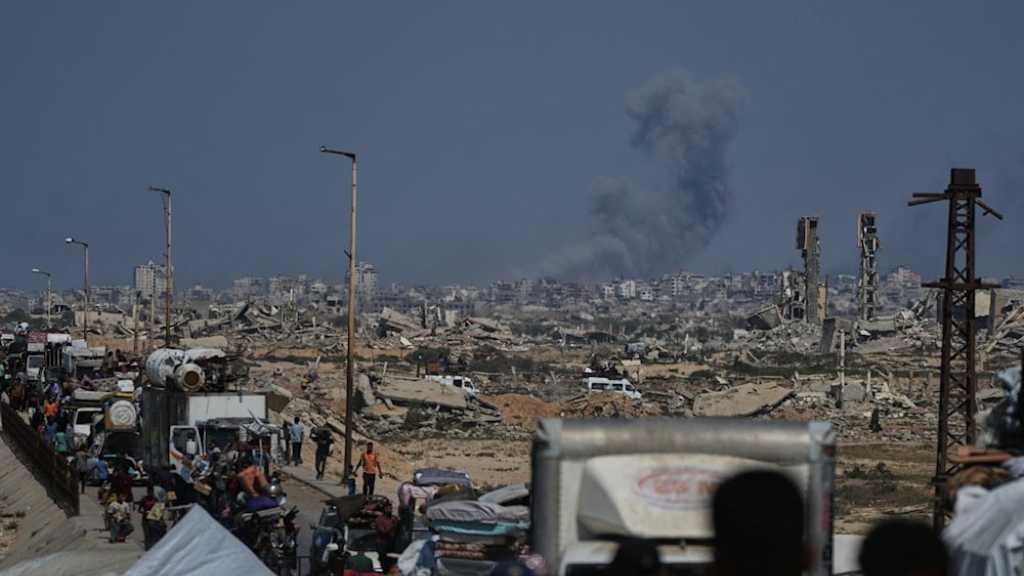Life on Hold in Northern Settlements: ‘Israeli’ Voices Oppose the Rushed Return Plan

By Al-Ahed News, Hebrew Media
The “Israeli” website Calcalist published new data regarding the situation on the northern front and the difficulty in returning all settlers to the region. It reported that nearly three months after the implementation of the plan to return tens of thousands of northern settlers to their settlements, only 62% have returned.
According to the website, the lowest return rates were recorded in the settlements of “Metula”, “Manara” and “Shtula” near the Lebanese border, where return rates ranged between 14% and 25%. In “Kiryat Shmona”, about half of the settlers still reside in hotels or in the communities to which they relocated at the outbreak of war in late 2023.
Data presented Monday to the Knesset’s Special Committee for the “Negev” and “Galilee” by the so-called Rehabilitation Center of the North, known as “Tnufa”, revealed that just 30% of businesses in northern territories have resumed operations in recent months. Meanwhile, billions of shekels allocated for post-war infrastructure repairs remain unused.
According to this data, the “Israeli” occupation entity, which had already struggled to address the north’s challenges, continues to procrastinate—even nearly six months after the ceasefire agreement between “Israel” and Lebanon went into effect.
The website highlighted that ongoing chaos in decision-making and the mismanagement of “Israel's” internal affairs continue to impact the northern settlements. This was evident during a Knesset session, where Einav Peretz—responsible for the so-called Northern Project—announced that her temporary mandate had expired the previous week. Her role, initially a three-month interim appointment alongside her position as Director of the Northern District at the Ministry of the Interior, could not be extended due to the absence of an official civil service commissioner.
The website noted that at the outbreak of the war in the north, around 68,000 “Israelis” were evacuated due to fears of a ground invasion by Hezbollah, similar to Hamas’s operation in the Gaza envelope.
In parallel, data from the Knesset Research and Information Center indicates that over 4,200 “Israelis” are still residing in hotels in the occupied territories, and more than 22,000 are residing in community-based housing solutions.
The enemy ministries estimate that the majority of settlers will return to their settlements by July, coinciding with the end of the academic year and the expiration of temporary entity assistance.
Several Knesset members attributed the low rate of settler returns to the limited resources allocated to the Northern District, especially when compared to the “Tekuma” District, which oversees the rehabilitation of the Gaza envelope. However, officials pointed out that the majority of the funds earmarked for the north remain unused and have not been directed toward infrastructure repair or development in a manner that would motivate settlers to return.
For her part, MK Orit Farkash-Hacohen remarked, “The discussion shouldn’t be limited to the number of returnees. The situation in the north was difficult even before the war because the government [entity] never viewed it as a strategic asset. Why wasn’t there sufficient investment in infrastructure, agriculture, and reducing gaps? How can we look these residents [settlers] in the eye?”
According to Einav Peretz, the head of the Northern Project, “Money is not the problem.” She announced a new plan under which the department would allocate nearly half a billion shekels [over $141 million] to rehabilitate buildings in settlements located less than 2 kilometers from the Lebanese border. The plan also includes expanding settlements and encouraging positive migration to increase the “Galilee’s” population by 100,000 individuals by the end of the decade.
The head of the “Negev” and “Galilee” Committee in the Knesset, Oded Forer, commented, saying, “There are no basic services for ‘Israelis’ in those settlements.”
He went on to say, “In the current situation, I don't understand why there was a rush by ‘Israel’ to launch the settlers' return plan at the beginning of March.” He added that the “Israeli” entity wanted to portray a victory and failed. It didn’t even properly engage with the issue. It is disconnected from reality and trying to put a band-aid on a bullet wound. There is no comprehensive plan and no integrated vision for addressing the problems of northern settlers.
Amid the ongoing downturn in the commercial sector in the north, Forer announced he would hold a special session to follow up on the entity’s Ministry of Economy’s actions in the “Galilee”, criticizing the Minister of Economy, Nir Barkat, who spends much of his time abroad. “If the Economy Minister finds it necessary to travel abroad once a month, then he should at the very least make it a point to visit the north once a week to witness the situation firsthand.”




